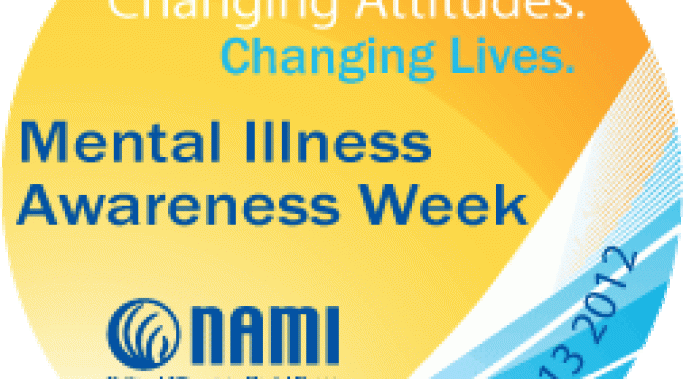In my last article I wrote about creating reasonable expectations for the holidays and how that can help your mental health. Today, I want to talk about the stress of holidays with family.
Now, don’t get me wrong, family can be great, but more often than not, holidays cause a gathering of family members you both gel with and those you don’t and I hear from a lot of people that they hate such family gatherings. But why? Are family gatherings worse for people with a mental illness?
How Others See Bipolar
You’d let them take an ice pick to your brain if you thought it would help.
Bipolar disorder impacts different people differently. For some people, bipolar disorder is immanently treatable. These people find doctors, therapy and medication and walk off into the sunset with few bipolar symptoms left with which to contend. These people lead the same lives as everyone else and besides (likely) controlling certain lifestyle factor that contribute to stability, they don’t have to think about bipolar disorder on a daily basis.
Then there are the people who are more affected by the illness. These are people for whom treatment partially works. They likely find doctors, therapy and medication too, but in spite of best efforts, they live with bipolar symptoms every day. These people might live your ordinary life or might live a life that is more affected by the illness, such as one where they can only work part-time.
And then there are the people that are severely affected by bipolar. Even with treatment these people tend to have intractable moods and likely can’t work because of them. These people do not live average lives. They live lives dictated by the illness and the treatment. These people are in pain every day.
And it’s only chance that places you in one of those three groups.
Since I’ve started writing for HealthyPlace I’ve learned a lot about what you’re not supposed to say about mental illness. Some classics are the word “crazy” and not referring to oneself as “bipolar” directly.
In other words, I’m not allowed to say I’m a crazy bipolar.
There are many other things I’m not allowed to say too. “Mental health” can only be used in some cases whereas “mental illness” must be used in others. And then there’s “behavioural health” and the myriad of rules around talking about suicide. One could get permanent writer’s block worrying about ticking off some group of people who care about some specific word.
So I have a rule. I do what I want. And I tick off some people. It’s not on purpose; it’s just that if I didn’t, how in the heck would I write?
I wish someone had asked me before naming a class of drugs “antipsychotics.” I mean, I understand that to psychiatrists it might not be a big deal, but to the medication-taking public out here, let me just say that the stigma around medication is about 10-fold when you say you’re on something called an “antipsychotic.”
Tell someone that you’re on “antipsychotics” sometime and watch them back away slowly. I’m not kidding. It’s like they think an axe is about to magically materialize and you’re about to use it to chop off their head.*
One of the problems with psychotherapy (and, keep in mind, I like psychotherapy) is that psychotherapists try to look for a cause for every emotion. And this seems reasonable. Or at least it does, to a person without a mental illness.
I’m a mental health writer and I have a mental illness, so, of course, I write about my mental illness. I write about my symptoms and the affect they have on my life. I write about their treatments and their success or lack thereof. I write about what it’s like to have bipolar disorder.
And boy do people feel fine about judging me for it.
Commonly people will say that I don’t have bipolar disorder (being, I’m sure, expert diagnosticians) or say that I’m an idiot (and whatnot) for trying the treatments I have. It’s gotten so bad, in fact, that some things I don’t like to talk about at all. People like to attack me for electroconvulsive therapy and vagus nerve stimulator use specifically. And I don’t like to talk about self-harm, because inevitably people yell about that.
But I learned something earlier this week – not everyone judges people with a mental illness.
I’ve been writing about bipolar disorder and mental illness for nine years. Nine long years of pain and depression and episodes and hyperreality and desperation and description and explanation and exploration. And people still don’t get it. Even if you look at the past year – over 200 articles, there still seems to be nothing but a chasm between the mentally ill and so many of the mentally well.
And I think this is because language is insufficient to express emotional pain and turmoil. We have good words for describing physical pain: radiating, hot, throbbing, sharp, achy and so on. But when it comes to emotional pain we’re “sad.” The same word applies when you drop your ice cream cone on the ground as when you’re so depressed that you can’t get out of bed. It’s not surprising that people don’t get what we’re talking about.
If you haven’t been turning in to Homeland, you’ve been missing out on a new bipolar icon. Homeland stars Carrie Mathison, played by Claire Danes, a Central Intelligence Agency (CIA) office who, unbeknownst to her employer, has bipolar disorder.
Homeland is no average show. Homeland won Best Show, Best Writing, Best Actor and Best Actress Emmys. You can catch Homeland on Showtime in the US and Super Channel in Canada.
Of course, the reason I tuned is was to see how this show handles mental illness. And they do not too bad a job.
There are a lot of things I don’t believe in. Religion. Ghosts. Tarot card readers. Tea leaves. Homeopathy. Taylor Swift. And so on. We all can make a list like this. We all have things we believe in and things that we don’t.
But one thing we all have in common is that we’re all looking for ways to get through the pain of mental illness, bipolar disorder. And some people find religion, ghosts, tarot card readers, tea leaves, homeopathy or Taylor Swift comforting. And I think it’s important we don’t disavow or judge something just because we don’t believe in it.
Come out, come out, wherever you are!
Yes, it’s Mental Illness Awareness Week again and if you’re here, at HealthyPlace, you probably already got that memo. But you might be wondering what to actually do to promote mental illness awareness. No art exhibit, educational session or candlelight vigil in your neighbourhood? Don’t worry – anyone can promote mental illness awareness just by talking about mental health.
![MP900440934[1]](/sites/default/files/styles/blog_listing/public/uploads/2012/12/MP9004409341.jpg?itok=O3b_8H6w)
![MP900321197[1]](/sites/default/files/styles/blog_listing/public/uploads/2012/12/MP9003211971.jpg?itok=MBDqb95X)
![MP900404982[1]](/sites/default/files/styles/blog_listing/public/uploads/2012/11/MP9004049821.jpg?itok=yUCTqWP9)

![MP900385750[1]](/sites/default/files/styles/blog_listing/public/uploads/2012/11/MP9003857501-731x1024.jpg?itok=CsQXXT54)
![MP900289528[1]](/sites/default/files/styles/blog_listing/public/uploads/2012/11/MP9002895281.jpg?itok=g9HZCR-S)


